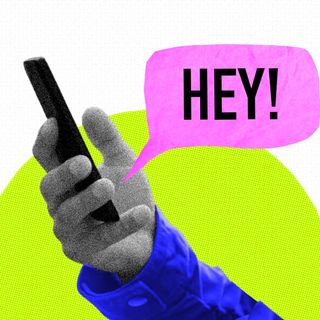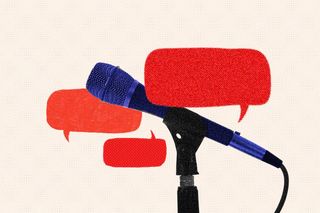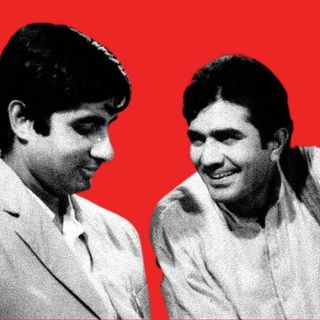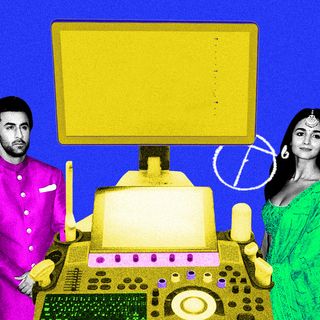
Objecting to the Misogyny, Prejudice of Indian Comics’ Offensive Jokes is Not Cancel Culture
Humor an an artform can be emotional and informative — a knowledge that comic Samay Raina disregards with his joke on abortion.

Bring out the sirens: an Indian comic is in fear of being canceled. Recently, Samay Raina received criticism for misogyny disguised as humor. The “joke” in hand doesn’t need to be relayed verbatim, for it offers little by way of amusement and does a disservice to many instead. The summary is: Rainatweeted about his girlfriend, the girlfriend didn’t like the joke and asked him to delete it. Rainaanalogizes the instance and applies the logic most spuriously, suggesting that he now feels entitled to single-handedly make her reproductive choices for her. His punchline? “…mat bolna my body my choice.”
He managed to take a critical, grieving moment in women’s history and suck it dry of all the care and tenderness that is needed as a social response.
Raina’s instinct told him to harken back to stalwarts of edginess; he invoked the legacies of all comics past to defend himself against public ire. “Fear of cancellation from the left is why we don’t have comics like Andrew Schultz, Jimmy Carr, Dave Chapelle, [and] Ricky Gervais in the Indian comedy scene. Don’t worry, I’m here to change that,” he tweeted out in response to public ire. A colleague noted how it’s as good as saying, “I can’t make good jokes so let me shift the blame of our inability to be good comics on our audiences.”
Jimmy Carr has famously carved a reputation for being controversial, boldly riffing about everything from rape and “ugly women” to race and the Holocaust. Dave Chapelle has cultivated a special reputation for transphobia (he can’t seem to grasp the concept of men with vaginas and women with penises) and anti-semitism. Ricky Gervais followed Chapelle’s lead, waxing bigotedly about the trans community — to an extent, some LGBTQ+ advocacy groups called his humor “dangerous.” Raina is not singular in casting these individuals as legends; for fans and some comics alike, the humor represented here is of utmost superiority. It is edgy, problematic, and crass, the highest degree of art within comedy.
But Raina’s defense, and the acceptable substance of jokes, is a case study of many things. For one, comics very frequently feel the need to resort to trite rhetorics: that the Indian comedy scene is not progressing enough, or is not breaking the jocular glass ceiling because we are too conservative and insist on stifling people’s voices. This is a false dichotomy; it relies on the premise that hate speech is a critical component of free speech, thus erroneously limiting the imagination present within comedy.
Related on The Swaddle:
Ricky Gervais’ Special Shows How Edginess in Comedy Becomes a Front for Bigotry
Arguably, there is an intolerance to jokes the world over. Look at India and one sees comics facing threats and violence — and being unfairly imprisoned — for even daring to joke about Hindus or the ruling government. If one can’t blame the right, the instinct is to look at the left and call out their intolerance instead. People who object to jokes about gender and sexual identity, gender roles, race, and social justice issues are chided for being “too woke”; their wokeness is the social plague that comedy warriors must address. While they occupy themselves with this errand, the idea still remains that the Indian comedy scene, or comedy in general, is suffering because of a lot of things, but the demand to be more aware and inclusive is not the one curbing its potential.
Two, the criticism of Raina’s jokes, or for that matter, those of his peers, is not cancel culture. If in the popular imagination, cancel culture means a person is forever silenced and condemned to a life of visible banishment, no one is really canceled. These comics will still take to stages and make thousands — if not millions — laugh. They will share the spotlight with other famous people, hug them, be pally, and continue to be famous and controversial. No one is suffering any consequences or being forced to reconcile with their individual prejudices, at least meaningfully.
Three, and chief among them all, is how the incident reduces abortion to a canon of comedy as such. There is race humor, trans humor, and casual sexism, among other sub-categories people holding structural privilege, tend to lean towards. We can talk about what is a joke and what is not. We also know the real and tangible damage bigoted jokes can do — they translate into real-life violence and discriminatory behaviors.
But we can also talk about what should be joked about and what shouldn’t. Take the present incident as a case study: the “joke” uses a feminist chant as a punch line and manages to completely strip its context, and instead imbue it with a tone deeply misogynistic and ignorant. It’s not a joke, it’s a movement butchered to evince quick laughs. Abortion is no joke. Anything that deeply fractures and jeopardizes people’s identity, lives, and stories, can never be fodder for a joke. More tangibly, “abortion jokes” as a canon deflates the momentum of reproductive justice; it also shifts the conversation from issues of bodily autonomy, agency, and access to healthcare to a shallow idea that women are whimsical.
The criticism aptly draws from the anger of joking about abortion, distorting a feminist slogan that carries the historical weight of struggle and injustice, commodifying a critical moment in time, and worst of all, for it being a bad joke.
“The edge is the provocative, revolutionary, offensive form of art that elevates the human race,” Rohitha Naraharisetty wrote in The Swaddle last month. “Except, there’s nothing edgy in a man fully aware of his own privilege joking about someone else’s lack of it. It’s not just crude — it serves as a perfect ploy for disguising an unwillingness to grow out of your own beliefs. It never was edgy, it just was bigoted.”
This is a more nuanced conversation when applied to people who earn fame from these television stand-up comedy shows like Comicstaan and establish an identity, without realizing the potency of the artform they seem to be applying. Humor is about laughter; it can simultaneously be about educating, informing, and responding to a fractured social reality. Look at Hannah Gadsby, who weaved a connection with her comedy specials. Bo Burnham touched upon the sadness and isolation of the modern world. There are many others who make it possible to allow empathy and kindness to co-exist, and even be part of the humor.
Saumya Kalia is an Associate Editor at The Swaddle. Her journalism and writing explore issues of social justice, digital sub-cultures, media ecosystem, literature, and memory as they cut across socio-cultural periods. You can reach her at @Saumya_Kalia.
Related


Woe Is Me! “I’m in Love With a Friend Who Doesn’t Love Me Back. How Do I Cope?”
